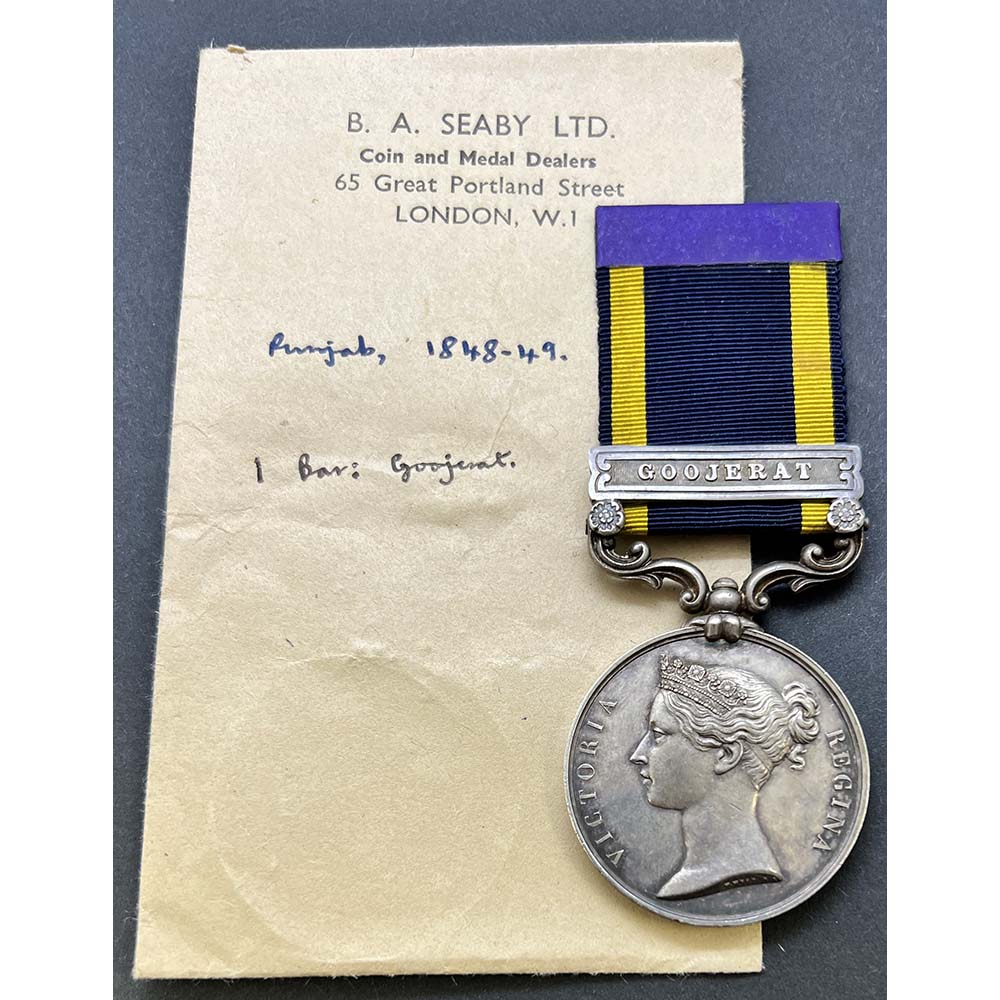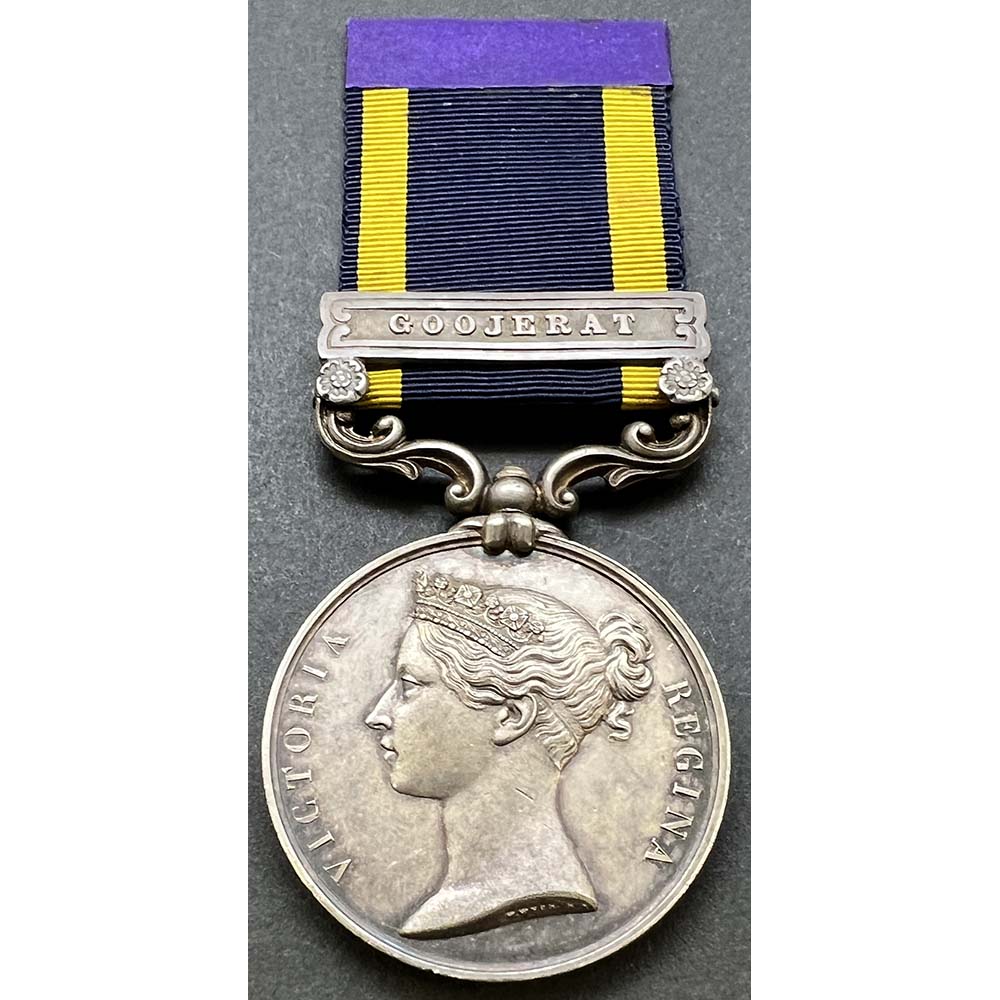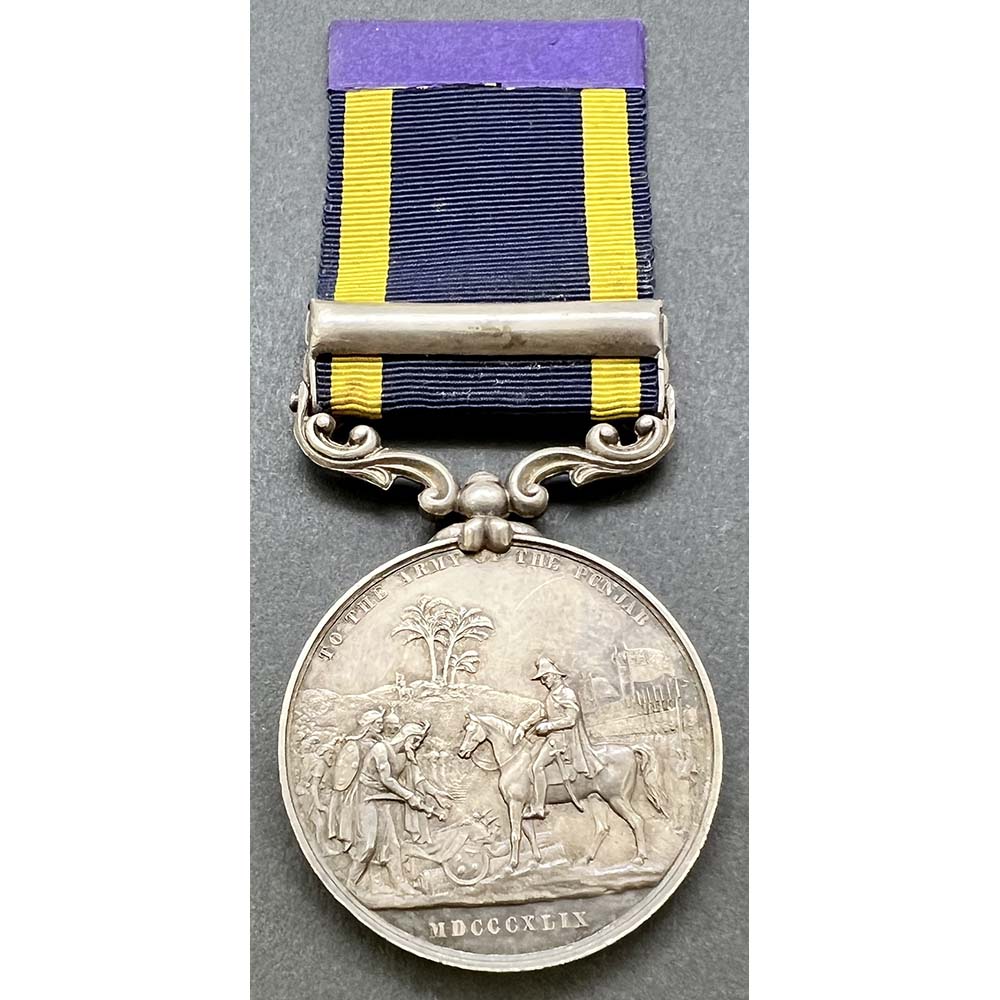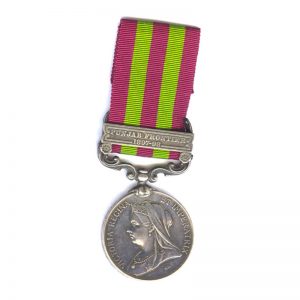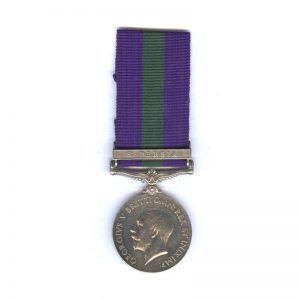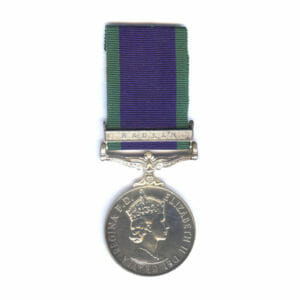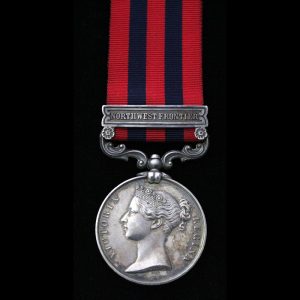Description
Punjab Medal, bar Goojerat, Henry Clarke, 32nd Cornwall Regiment of Foot, came from Radford, Nottinghamshire.
Officially impressed: “Henry Clarke, 32nd Foot.”
With medal roll, copy attestation and service records.
Medal roll confirms he was at Goojerat, also possibly being entitled to the Mooltan Clasp, but he was however discharged as soon as he earned the medal as unfit, and never wore it or had it altered.
He is crossed through on the medal roll and noted in the Punjab Casualty Roll as being discharged on 16th September 1850.
With an old B.A. Seaby medal envelope, the provenance of the medals last appearance seems to be when it was sold as such in the B.A. Seaby Coin & Medal Bulletin circa 1956, for 17/6.
3215 Private Henry Clarke or Clark of the 32nd Foot, was born in Radford, Nottinghamshire, circa 1828.
He attested for service aged 18 on 27th October 1846.
He was a Frame Work Knitter, and signed up to claim a £4 bounty at Nottingham.
Being looked over by the Surgeon William Munro, he was almost discharged on the spot in consequence of “Muscular Tenuity, and the loss of 6 Molar Teeth.”
He was however taken on “The disabilities stated above exist, but also he is a promising young man with good limbs, and the remaining teeth are sound, we do not feel justified in rejecting him.”
Upon his discharge he was noted at 6 foot tall, so they still hoped to find use for him as a Soldier, but he was soon after found to be a “A sickly emaciated youth, having a tendency to phthisis.”
The Punjab Campaign was not kind to him, after the war he was assessed and the toll of India had rendered him unfit to continue his service.
“This young man is naturally of a weakly habit of body, He has since May 48 repeatedly suffered from severe attacks of fevers since June last, he has been under Medical Treatment for Rheumatism of the Lumbar region and lower experimitis.
His constitution is so much impaired as to require a change of climate to Europe to gain the patient as chance of it being restored.
The disease is attributable to the predisposition and the effect of climate and not to vice or misconduct.”
Henry had been born the son of a local Nottinghamshire family, John, from Sutton in Ashfield (1799) and Hannah Clark (1800) from Arnold, Nottinghamshire.
Henry was specifically born in Hyson Green in Radford, Nottinghamshire.
His father was a local Frame Work Knitter and his mother a Seamstress.
The 1851 Census records him living with his family at Church Street, Smithy Row, Arnold, Basford, Nottinghamshire.
21 year old Henry Clark was already listed as a “Pensioner” of the Army.
Unfortunately it was back to the mills for him as Frame Work Knitter.
He was living on the same street but a lodger with the Brown Family in 1861.
